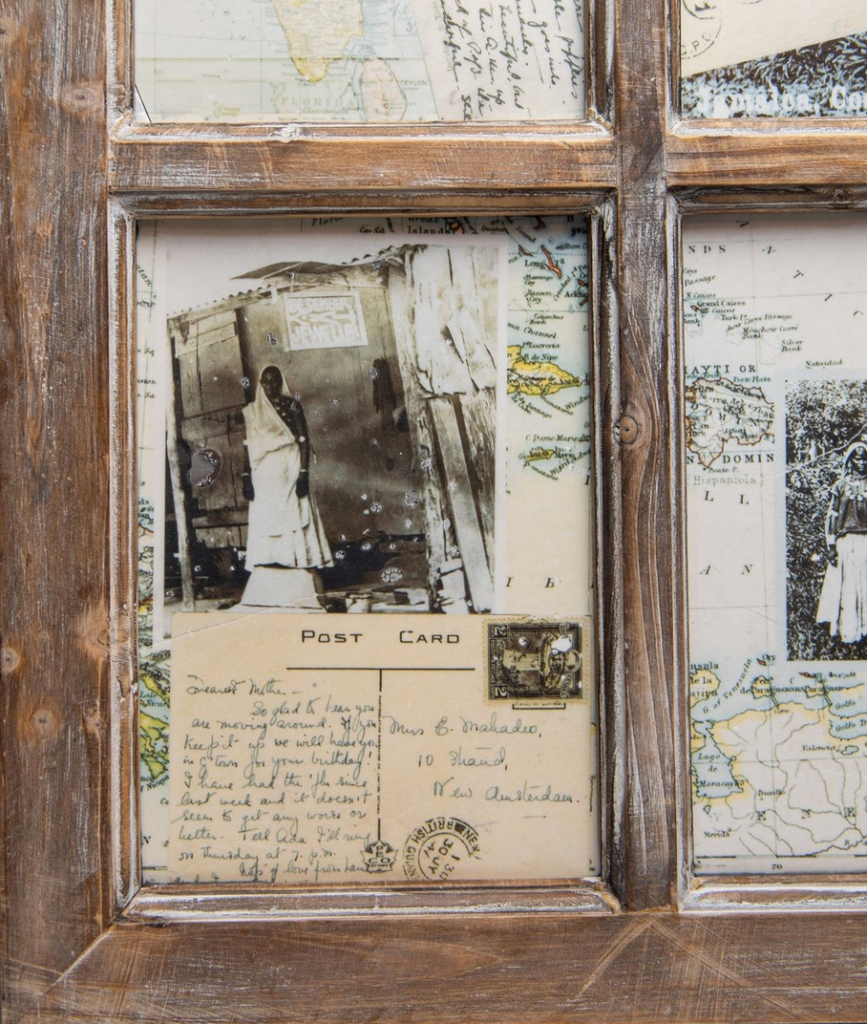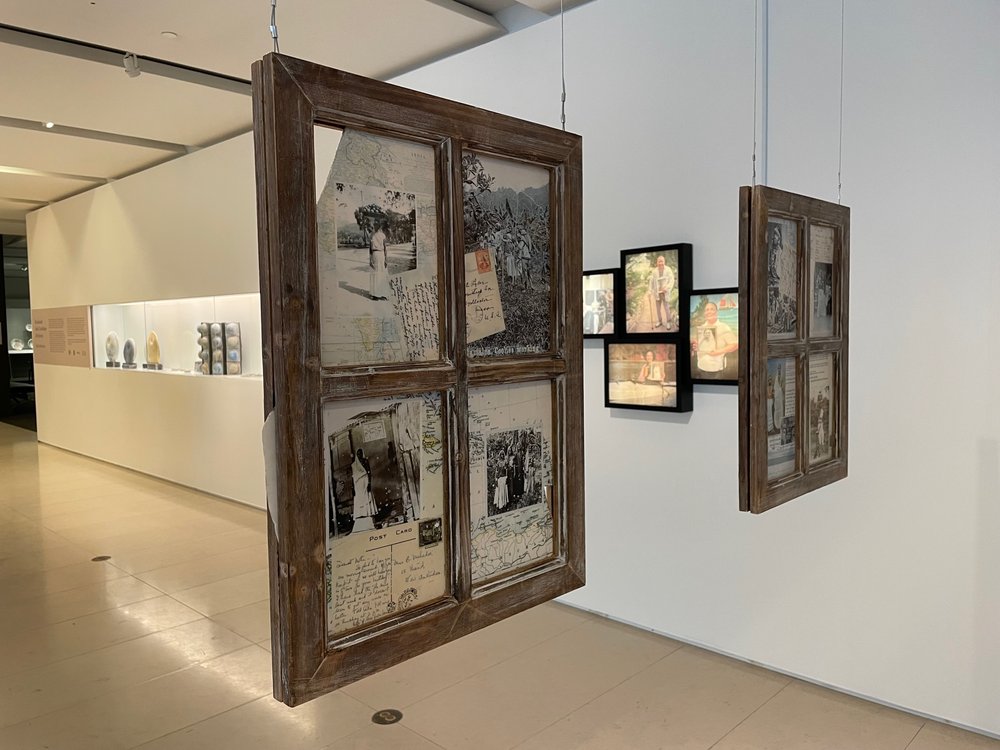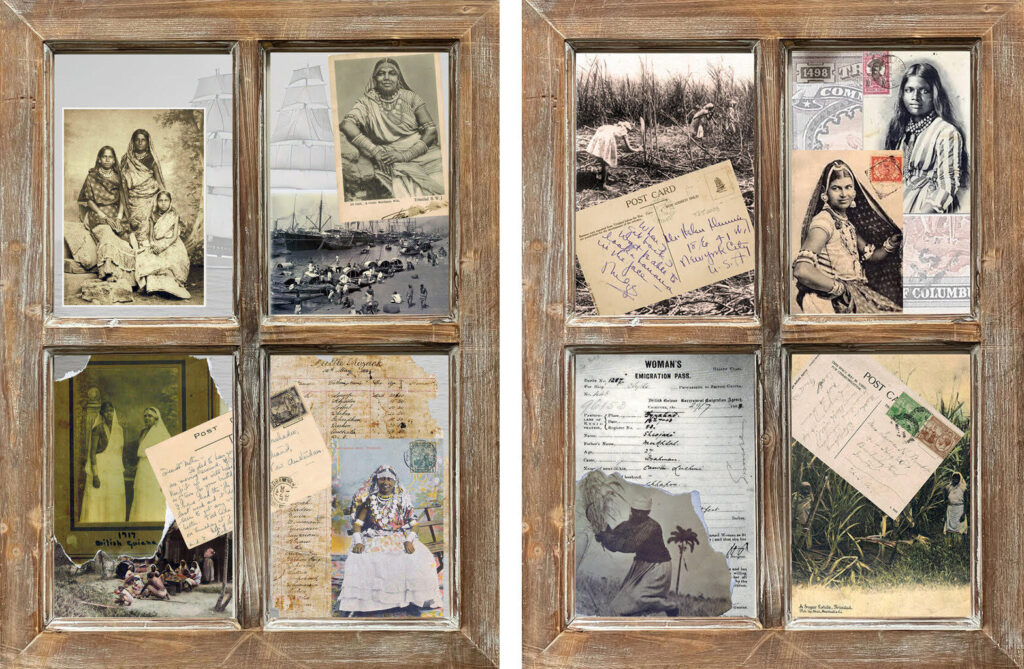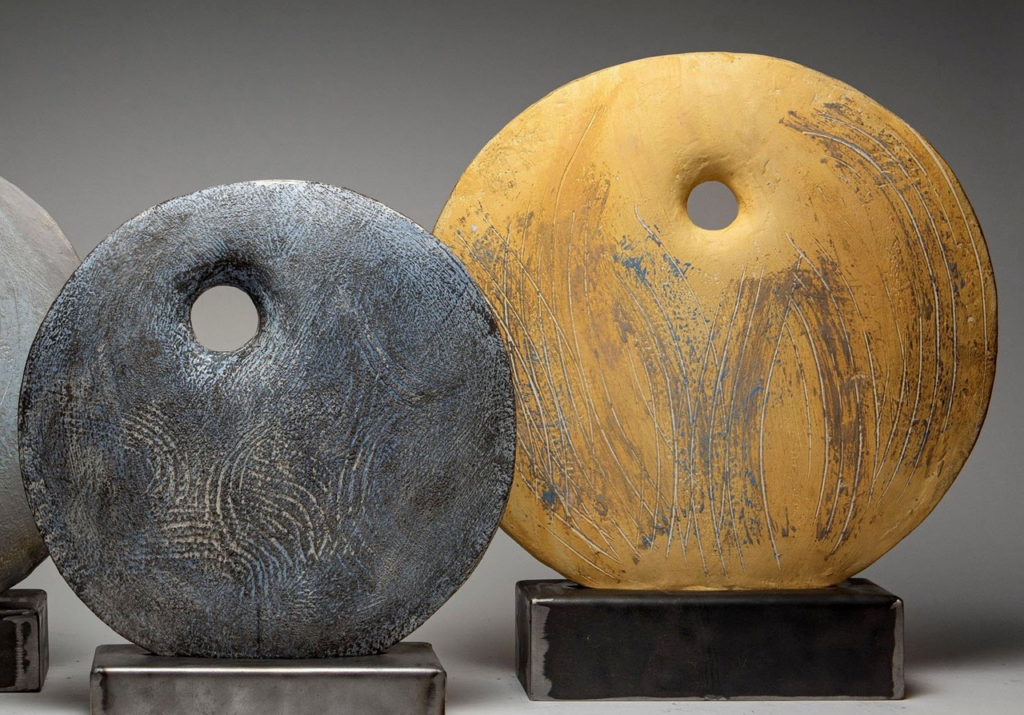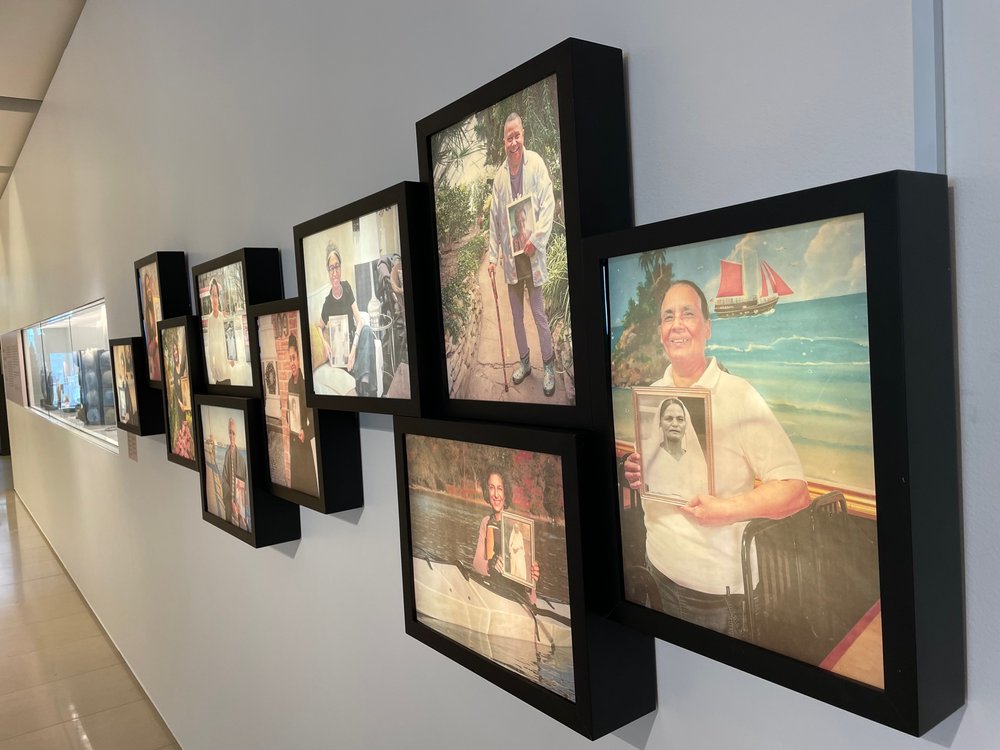“Dear Mother…” reads one of the many sepia-toned postcards Heidi Mckenzie includes in her photo collage series Looking Back. The collages, framed using porcelain window panes, hang on invisible wires and glow as though warmly lit from within. The frame of the window creates the impression that we are literally looking back through time.
Heidi Mckenzie, Looking Back No 2 (detail), 2023, ceramic pigment photo decals fired onto hand rolled porcelain, cedar frame, hardware.
Viewers walk in a circle around the double-sided works, drawn in closer to read the postcards and see the portraits of “Coolie Belles.” Coolie Belles, as they called Indo women on the Caribbean sugar and tobacco plantations, are the focus of Mckenzie’s show at the Gardiner Museum. Known for her ceramic creations, Heidi Mckenzie’s inclusion in the Scotiabank CONTACT Photography Festival gently tows the line between photography’s ephemerality and ceramic’s solid, fleshy presence. Placed in the lobby of the Gardiner, a distinctly contemporary space with its cool white floors, grey cement, and clear glass cases, the natural tones and textures of her work find a perfect space.
Installation view of Heidi Mckenzie, RECLAIMED: Indo-Caribbean HerStories
Looking Back features swaths of colonial maps, records, posed portraits, postcards, letters, and photographs of plantation life, puzzled together to create four collages. A caption on one of the postcards reads “Jamaica, coolies working.” These images were composed and taken by colonial photographers and reflect their perspective. The figures are made into just a subject, a commodity, an object for photographing. The “idyllic” postcards too were made by and for the metropolitan eye; exoticized and sanitised to ignore the violence implicit in these images. Mckenzie’s collages literally reframe these items from the colonial records, reclaiming the images within, to shed light on the stories that are deliberately cut off by the colonial frame of perception.
look these upHeidi Mckenzie, Looking Back No 1 (left) & No 2, (right), 2023, ceramic pigment photo decals fired onto hand rolled porcelain, cedar frame, hardware
Of the half a million Indians who were enslaved in the Caribbean, twenty-percent were women. Their presence is felt in these archival photographs, wearing layers and layers of crafted jewellery as a form of cultural expression. Mckenzie depicts these bangles, necklaces, and earrings in blue, lightly washed grey, and white ceramic; odes to the lives of these women whose history is unwritten. The artist makes them larger than life by making their presence felt. The sculptures are placed next to still extant pieces of jewelry. To the artist, the jewelry worn by Coolie Belles symbolizes defiance; they were constructed from their melted earnings, worn to hold their savings on their person and also to express the cultures the colonial powers attempted to sever them from. Where the colonial postcard or portrait refuses the self-expression of the sitter, these pieces of jewelry represent their true identity.
Heidi Mckenzie, Coinage, 2023, stoneware, dry brush porcelain, steel stand
The uniquely matrilineal connection that Indo-Caribbean descendants in Toronto today hold with their ancestors is the main theme of this mixed media show. In the most moving photographic series in the exhibit, Holding Ancestry, Torontonians hold framed photographs of their ancestors. These portraits are printed on ceramic surfaces. They are fitted with LED lights and lit from behind, creating an ephemerality that teeters between warning us of the fragility of these stories and their undeniable presence.
Heidi Mckenzie, Holding Ancestry, 2023, ceramic pigment photo decals fired onto hand-rolled porcelain, wood frame, LED fixtures.
Mckenzie’s show is intimate and focused. The works are visually expressive without the need for extensive text and data that might usually characterize shows like these. The artist, herself of Indo-Trinidadian descent, is using her practice to learn more about her ancestors. Writing our own histories, for some of us, is an ongoing process that requires recovery and reclamation. Heidi Mckenzie’s — and her broader practice— shows us that this does not have to be done through the sanctioned modes of text and narrative, but can be done through the visual and the emotive.
Shakuntala Fernandopulle
Images are courtesy of the artist and Scotiabank CONTACT Photography Festival
*Exhibition Information: Heidi Mckenzie, RECLAIMED: Indo-Caribbean HerStories,, May 4 – August 27, 2023, Gardiner Museum, 111 Queen’s Park, Toronto. Museum hours: Mon–Fri 10am–6pm, Wed 10am–9pm, Sat–Sun 10am–5pm.
There is an artist talk by Heidi McKenzie about this exhibition at the Gardiner on Sunday July 9th at 1pm, please contact the artist directly to rsvp @heidi_art. Free admission for participants.

